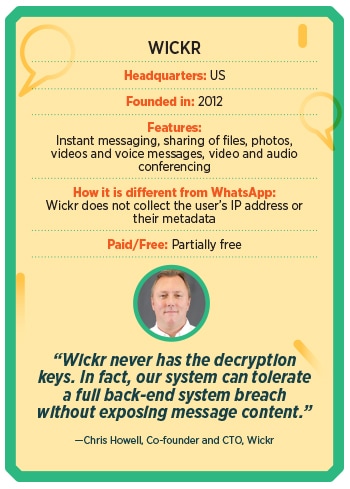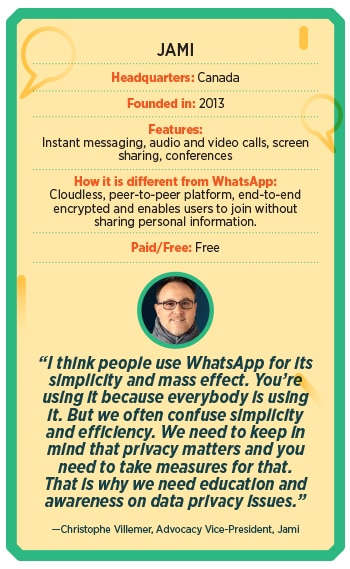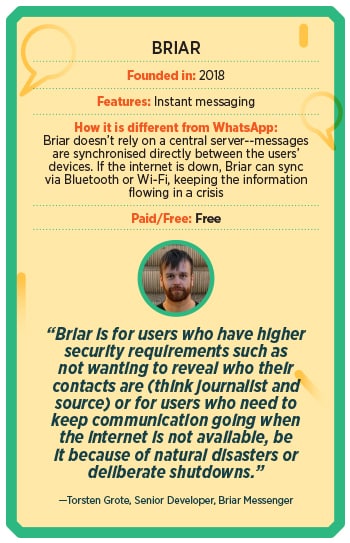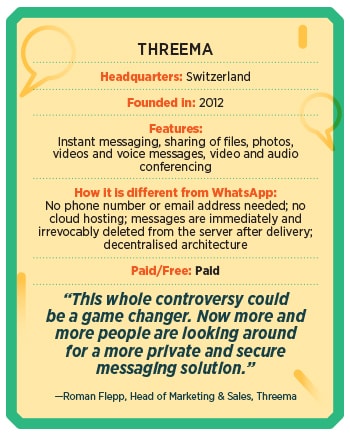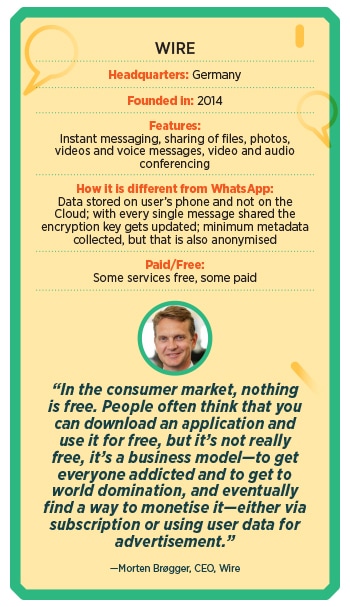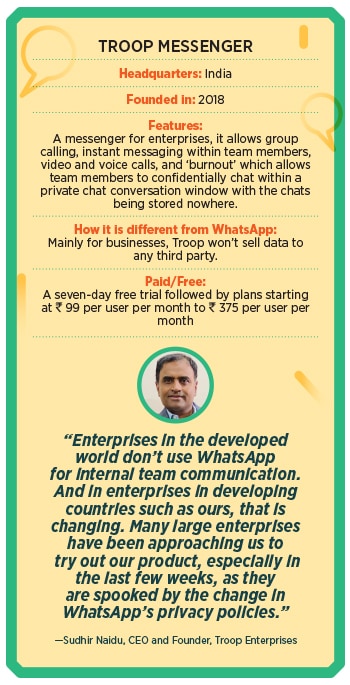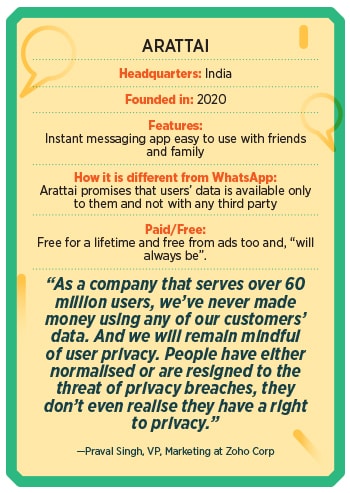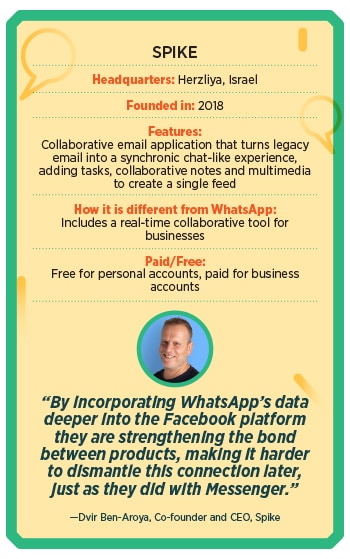
WhatsAlt: The Messenger Alternatives
Some use the internet, some function without servers, some are paid and others are free, but all these apps claim to have one thing in common—respect for user privacy
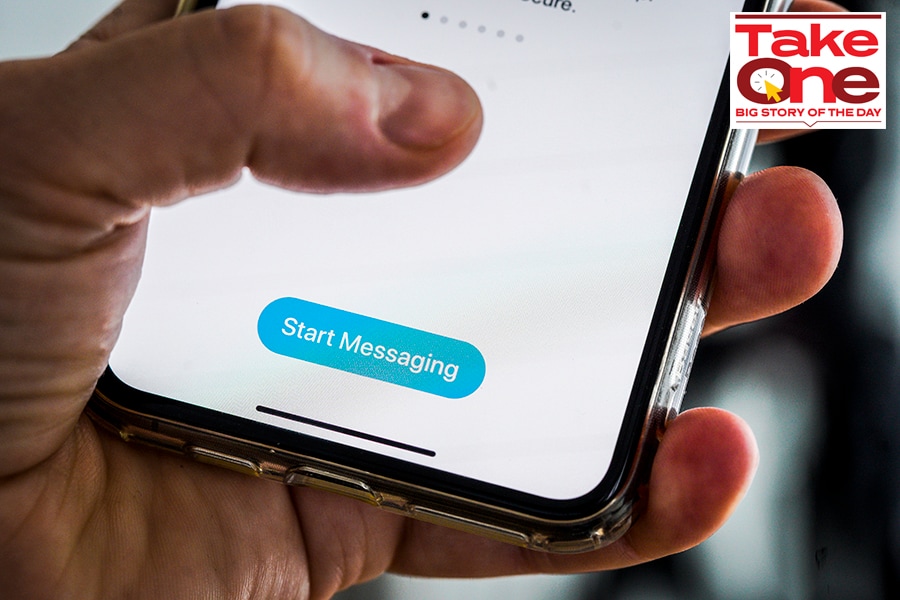 Image: Jaap Arriens/NurPhoto via Getty Images
Image: Jaap Arriens/NurPhoto via Getty Images
Ever since WhatsApp announced an update in its privacy policy, thousands of people rushed to download messenger alternatives such as Signal and Telegram. While these two have been in the news for their security features that are tighter than the messaging giant’s, there are other applications that have been around, used for both facilitating consumer-to-consumer messaging and within enterprises for their internal communication.
While some of these alternative apps need the internet, others don’t. Some function without servers with peer-to-peer technology, and are on a subscription model, while others are free to use. But they all claim to have one thing in common--respect for users’ privacy.
Although security and privacy-related technologies are constantly evolving making it difficult to lay down a clear benchmark for which app is completely secure, there are a few things users should be aware of to ensure their privacy is not compromised, say technology and privacy experts.
First, says Divij Joshi, technology policy fellow at Mozilla Foundation, a global non-profit, “It’s definitely important to have a communications protocol based on end-to-end encryption.”
End-to-end encryption refers to a system of communication wherein only the sender and receiver can read the messages and see the content shared.
However, Joseph Aloysius, a Singapore-based student researcher in surveillance studies, says, “Even with encryption it is important that it is device-based end-to-end encryption, and not cloud-based. In addition, the encryption setting should be a default setting, not optional as seen in Telegram.”
